Cloudways offers better performance than Hostinger in TTFB, Uptime, and load tests. Hostinger excels in offering an affordable pricing of $2.99/month (renews at $7.99/month), whereas Cloudways starts at $11/month. Hostinger is basically a shared hosting, so there will be limits on inodes, PHP workers, and visitors, but Cloudways comes with a cloud VPS architecture where there will be no limits on the above factors. Overall, Cloudways offers a better performance, scalable hosting architecture, and a powerful control panel to manage your sites. Hostinger is good if you plan to get started at an affordable price.
Cloudways vs Hostinger: Pricing
Cloudways lowest tier plan starts at $11 per month, with additional plans available at the following prices:
- DO1GB: $11/month, 1GB RAM, 1 Core, 25GB storage, and 1TB bandwidth
- DO2GB: $24/month, 2GB RAM, 1 Core, 50GB storage, and 2TB bandwidth
- DO4GB: $46/month, 4GB RAM, 2 Cores, 80GB storage, and 4TB bandwidth
- DO8GB: $88/month, 8GB RAM, 4 Cores, 160GB storage, and 5TB bandwidth
Hostinger plans are much more affordable:
- Premium: $2.99/month, renews at $7.99/month, 100 websites, 100GB SSD Storage, 25,000 monthly visits.
- Business: $3.99/month, renews at $8.99/month, 100 Website, 200GB SSD Storage, 100,000 monthly visits.
- Cloud Startup: $9.99/month, renews at $19.99/month, 100 Website, 200GB SSD Storage, 200,000 monthly visits.
Cloudways vs Hostinger: Performance
1. TTFB
To evaluate the Time to First Byte (TTFB), I set up a test site on both Cloudways and Hostinger hosting platforms.
Analyzing the data collected over the past 12 months, my Cloudways site had an average TTFB of 332 ms, while my Hostinger site recorded a TTFB of 375 ms.
This indicates that Cloudways outperforms Hostinger in terms of TTFB.
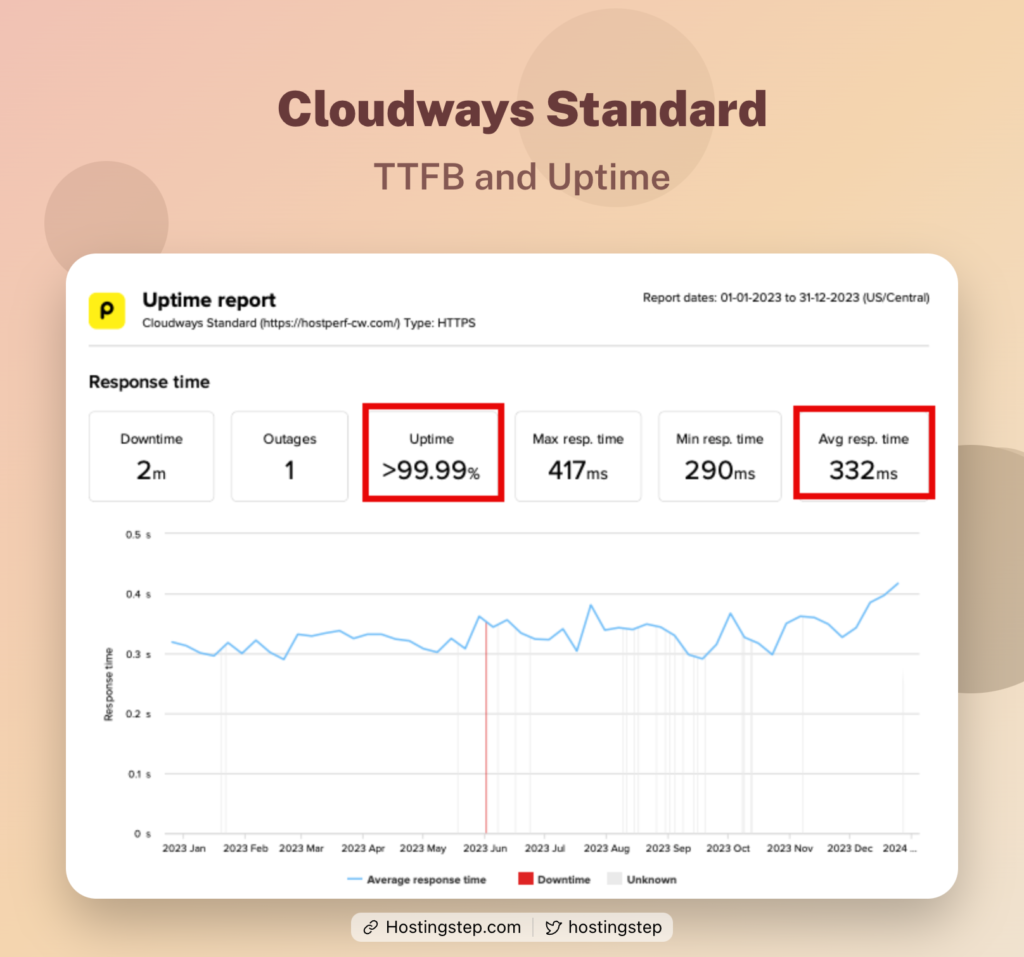
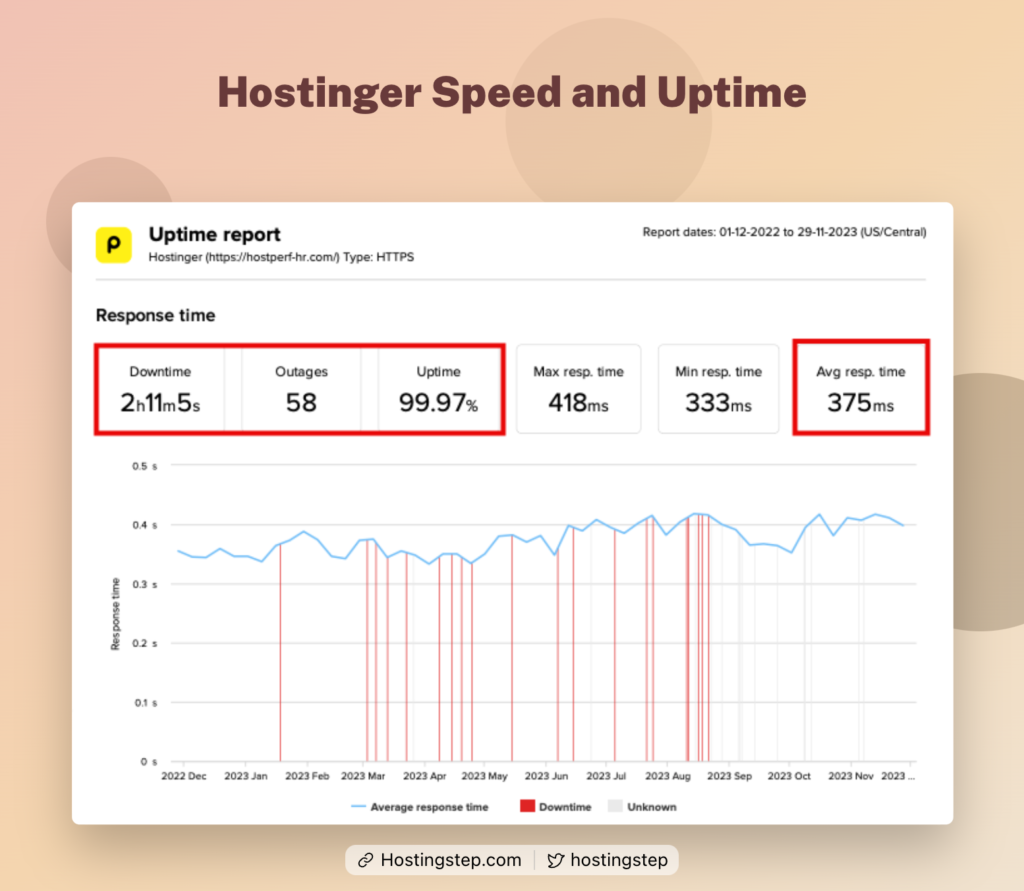
2. Uptime
Our data shows that Cloudways had a single outage and recorded an average uptime of 99.99%. In the same time period, Hostinger had 58 outages and recorded an average uptime of 99.97%.
Though Hostinger’s uptime is within their Uptime SLA, compared to Cloudways, it has a poor uptime record.
3. Load Testing
In this test, the Cloudways and Hostinger test sites are tested by sending 500 concurrent visitors to the site.
The results show that Cloudways’ site had an impressive response time of 266 ms. In contrast, Hostinger recorded a response time of 2412 ms, which is the lowest score we obtained after benchmarking numerous WordPress Hosting companies.
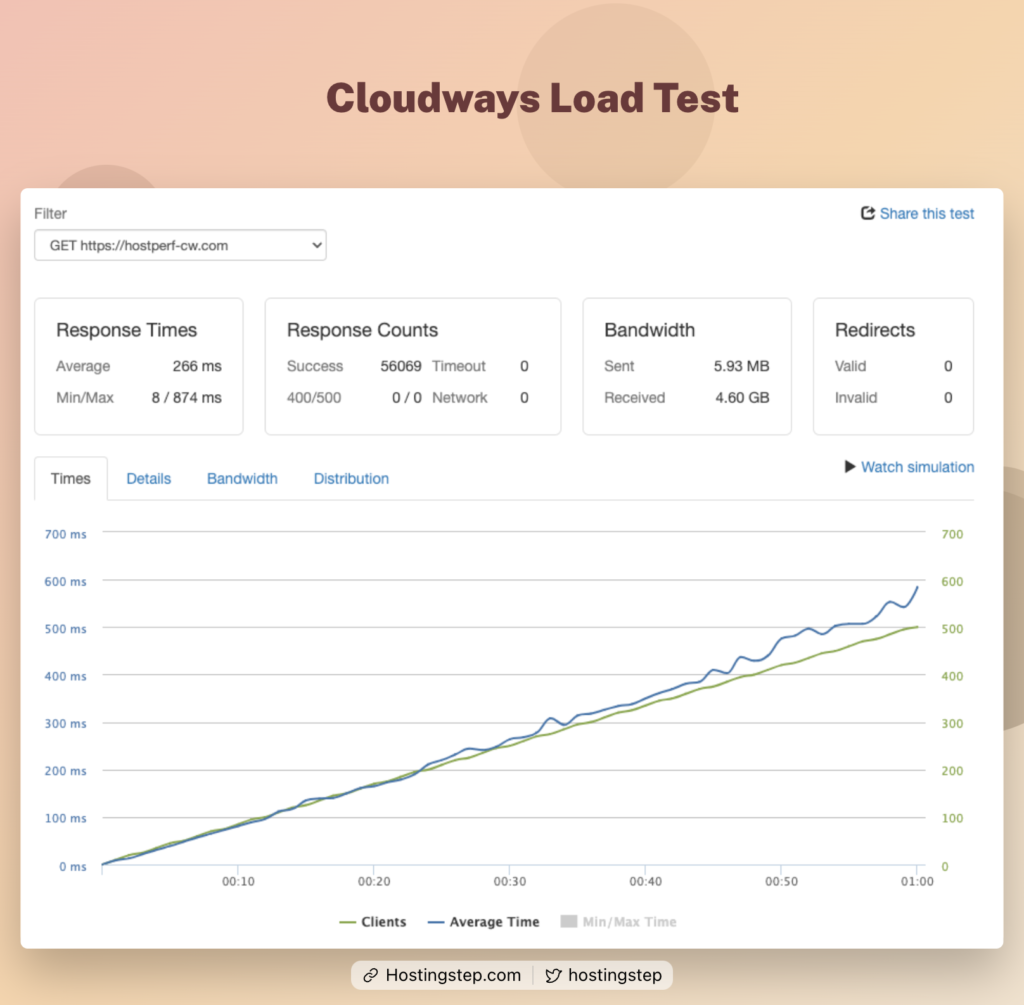
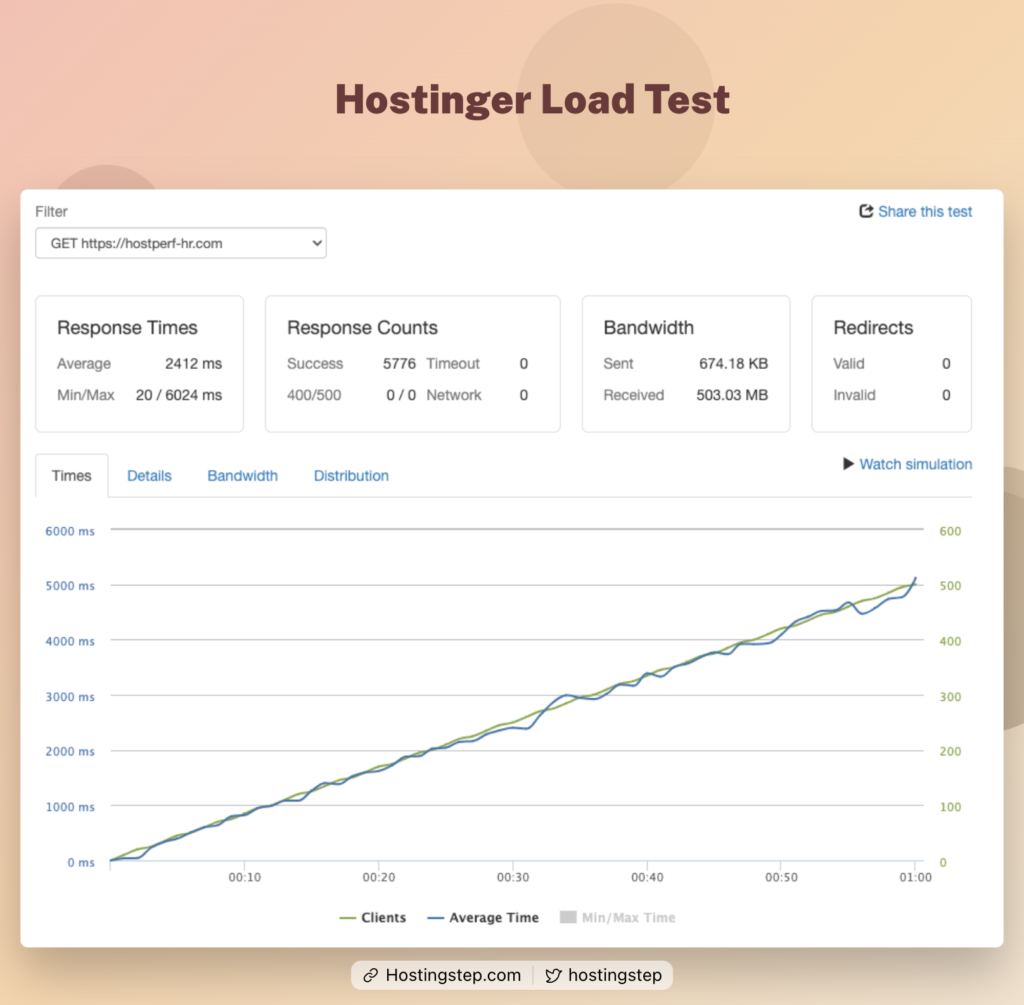
4. Core Web Vitals
Core Web Vitals is Google’s new way of obtaining quality signals to enhance the user experience on the web.
The test was done using GTmetrix, and the results show Cloudways’ site with a Largest Contentful Paint of 595 ms, a Total Blocking Time of 0 ms, and a Cumulative Layout Shift of 0.07.
My Hostinger site recorded a Largest Contentful Paint of 621 ms, a Total Blocking Time of 0 ms, and a Cumulative Layout Shift of 0.07. The results show Cloudways has better Core Web Vitals.
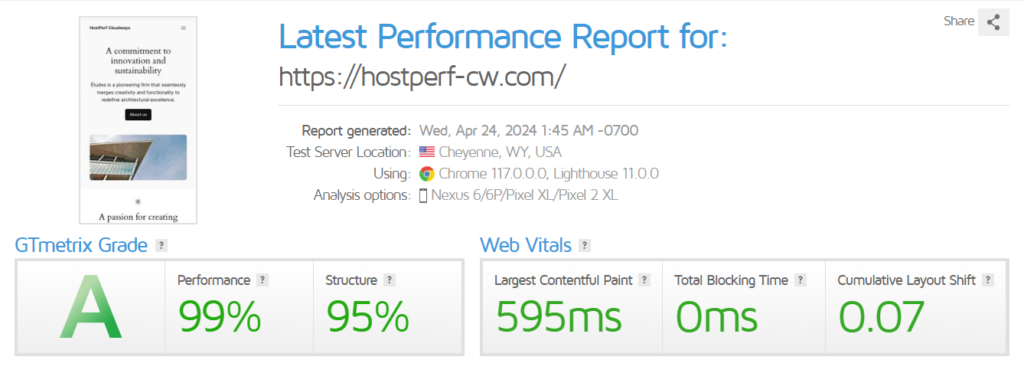
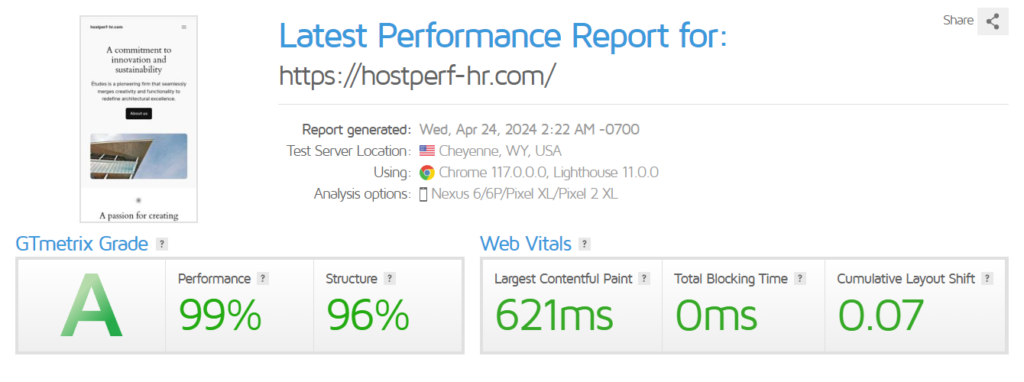
5. Global TTFB
The global TTFB test is performed on 40 international locations to measure the average global TTFB. The test results are useful if your site is getting traffic from global locations.
The results show that Cloudways had an average global TTFB of 445 ms, whereas Hostinger reported an average Global TTFB of 572 ms.
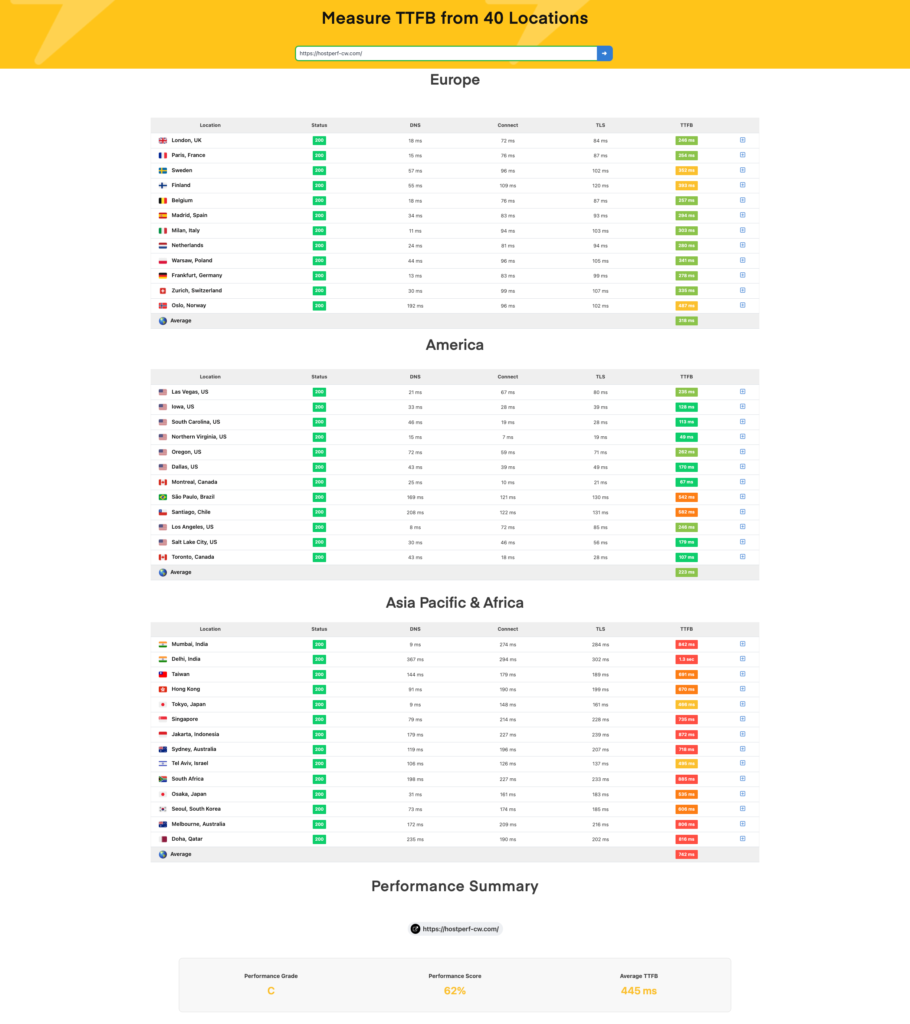
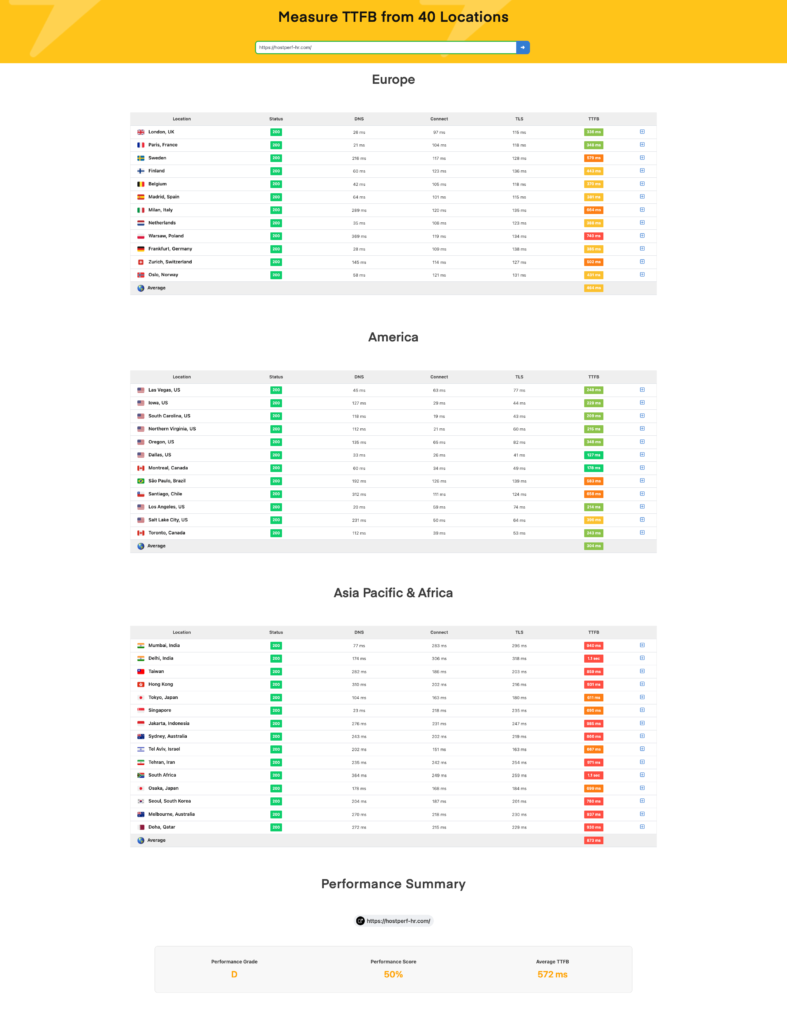
Cloudways vs Hostinger: Features
Control Panel
Cloudways comes with its own control panel with advanced features to manage every activity of your servers. The control panel is easy to navigate, and the interface is neat and organized, making it user-friendly.
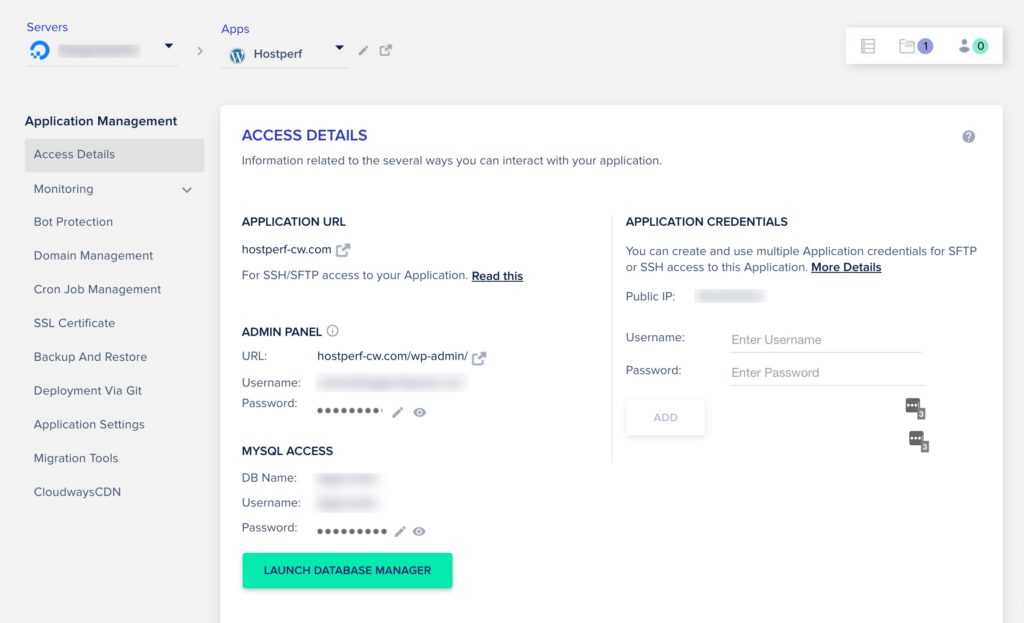
Hostinger, on the other hand, offers a custom hPanel with a less cluttered interface and effortless navigation.
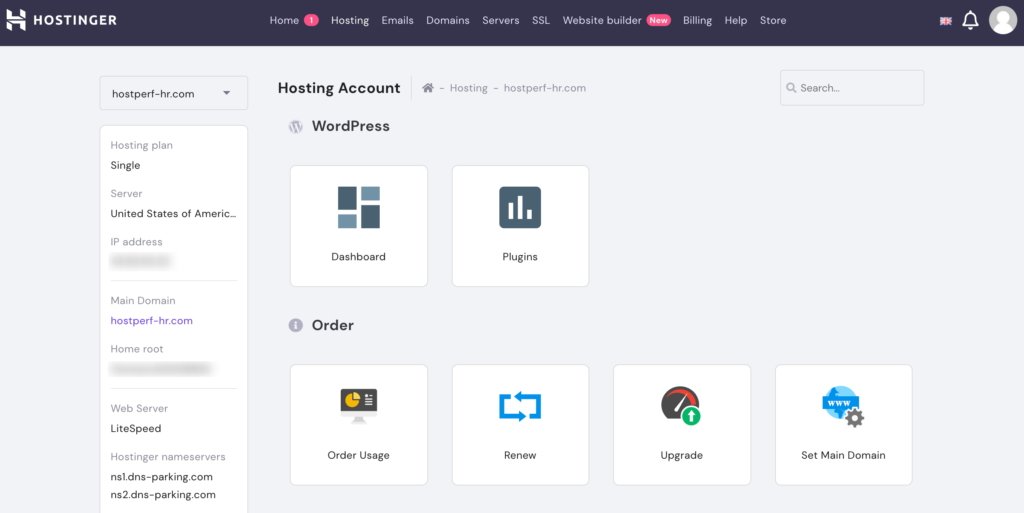
CDN
Cloudways offers its in-built CDN, CloudwaysCDN, powered by Cloudflare Enterprise. Cloudflare has over 275 global server locations, ensuring fast website load times. It is essential to note that CloudwaysCDN comes as an add-on charged at $4.99/domain/site.
In contrast, Hostinger offers Cloudflare CDN for free on all plans. The free Cloudflare provided by Hostinger lacks advanced features and can sometimes slow down your site.
Considering these factors, CloudwaysCDN emerges as the winner, offering advanced features and superior performance.
Backups
Daily automated backups feature is increasingly getting essential these days. Cloudways doesn’t offer this feature for free and charges $0.33 per GB for backup. Cloudways backup system stores your data in an external storage network.
Hostinger offers weekly backups on Premium plan whereas their Business and Cloud startup plan comes with daily and on-demand backups if needed.
Data Center Locations
Cloudways has partnerships with five cloud platforms, which provide a vast global network with over 65 data center locations worldwide. This enables customers to choose their desired data center location to target their audience effectively.
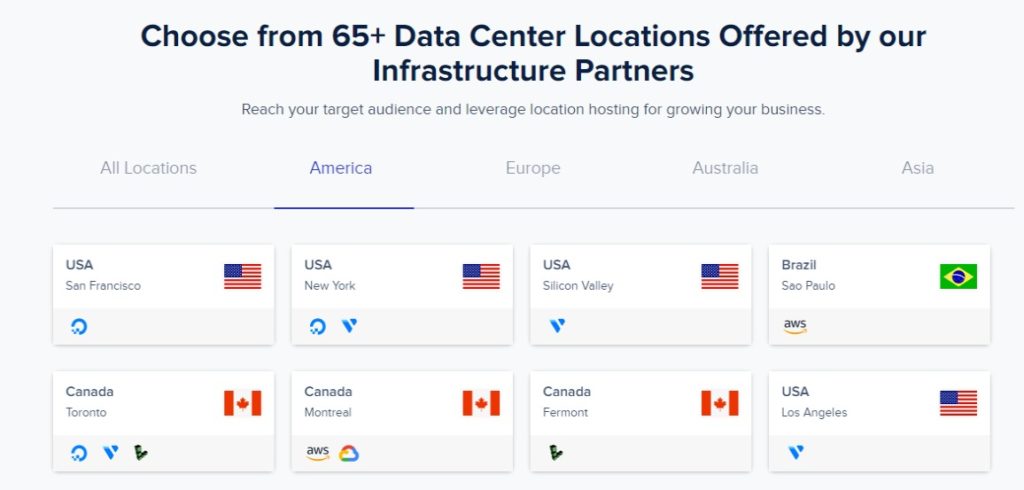
Hostinger has nine data center locations across the USA, Europe, and Asia. Therefore, if you opt for Hostinger over Cloudways, ensuring that it has the data center location you require for your project is crucial.

Conclusion
After carefully comparing Cloudways and Hostinger, it is evident that Cloudways outperforms Hostinger in terms of uptime, load testing, Core Web Vitals, CDN, backups, data center locations, and customer support.